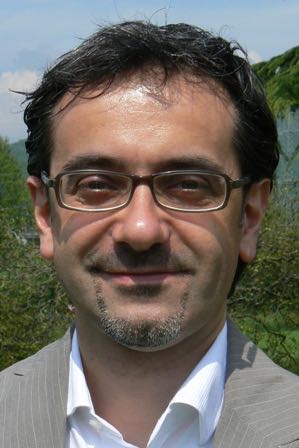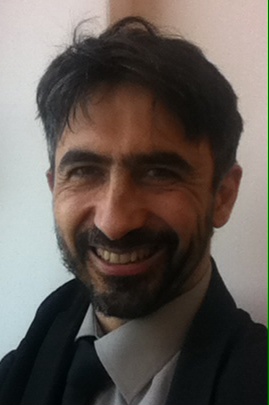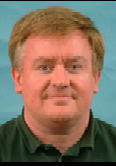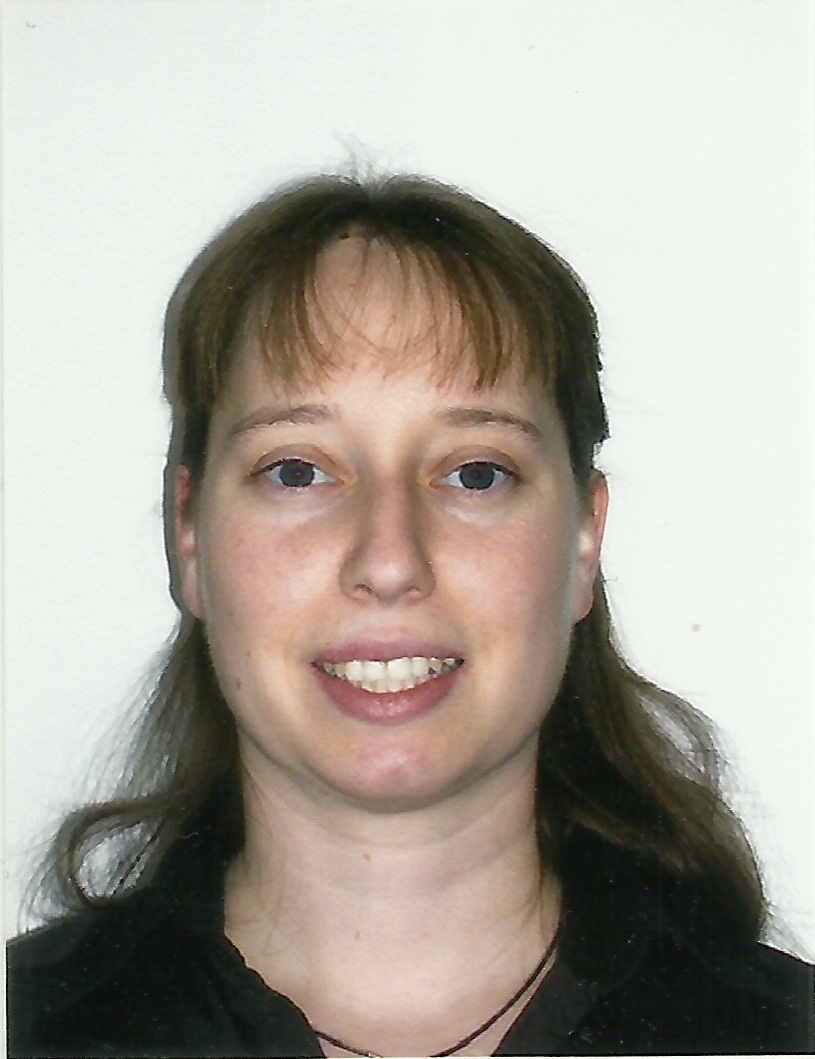Tutorial #1 (Monday April 13, 2015 – 9:00-12:30)
From dumb to smarter switches in software-defined networks: an overview of data plane evolution
Speakers:
Antonio Capone, Politecnico di Milano, Italy
Carmelo Cascone, Politecnico di Milano, Italy
Abstract: Coined in 2009, the term Software-Defined Networking (SDN) has gained significant momentum in the last years. SDN’s promises to enable easier and faster network innovation, by making networks programmable and more agile, and by centralizing and simplifying their control. Even if some SDN’s programmable networking ideas date back to the mid of the 90s, and do not nearly restrict to device-level programmability and to OpenFlow, it is fair to say that OpenFlow is the technology which brought SDN to the real world.
The separation between control and data plane is highlighted as a distinguishing feature of SDN, and sometimes even postulated as the SDN definition itself. But should such a separation necessarily take the form of a physical separation, namely a “smart” controller (or network of controlling entities), which runs the control logic for “dumb” switching fabrics? This was the case with the original OpenFlow, as its “match/action” programmatic abstraction necessarily resorts on an external controller for (reactively or proactively) updating forwarding policies in the switches’ flow tables.
Recently, the possibility of enriching the programmatic abstraction of OpenFlow to allow forwarding rules to evolve over time without directly involving the controller has emerged as a major trend in SDN research. This requires an evolution of the data plane that allows incorporating the ability to execute some kind of logic for reacting to events and modifying rules. This tutorial will discuss potential limits of SDN applications fully based on controllers and provide an overview of the trends in data plane evolutions analysing advantages and potential risks. In the second part some application examples and hands-on activities will be presented.
About Tutorial Speakers
 Antonio Capone is Full Professor at the Information and Communication Technology Department (DEIB) of the Politecnico di Milano (Technical University), where he is the director of the Advanced Network Technologies Laboratory (ANTLab). Prof. Capone is also co-founder and CTO of MobiMESH, a spin-off company of Politecnico di Milano. His expertise is on networking and his main research activities include protocol design (MAC, routing, resource management) and performance evaluation of wireless access and multi-hop networks, traffic management and quality of service issues in IP networks, network planning and optimization, and Green ICT. On these topics he has published more than 200 peer-reviewed papers in international journal and conference proceedings.
Antonio Capone is Full Professor at the Information and Communication Technology Department (DEIB) of the Politecnico di Milano (Technical University), where he is the director of the Advanced Network Technologies Laboratory (ANTLab). Prof. Capone is also co-founder and CTO of MobiMESH, a spin-off company of Politecnico di Milano. His expertise is on networking and his main research activities include protocol design (MAC, routing, resource management) and performance evaluation of wireless access and multi-hop networks, traffic management and quality of service issues in IP networks, network planning and optimization, and Green ICT. On these topics he has published more than 200 peer-reviewed papers in international journal and conference proceedings.
He currently serves as editor of ACM/IEEE Trans. on Networking, Wireless Communications and Mobile Computing (Wiley), Computer Networks (Elsevier), and Computer Communications (Elsevier). He was guest editor of a few journal special issues, and served in the technical program committee of many major conferences, and in several organization roles (including TPC co-chair of INFOCOM 2013, and area chair of INFOCOM 2012, 2014 and 2015). He is a Senior Member of the IEEE.
 Carmelo Cascone is a PhD student of Politecnico di Milano and Ecole Polytechnique de Montreal. He has experience in SDN softswitch implementation and SDN controllers and will present in the tutorial the application examples and the hands-on activities.
Carmelo Cascone is a PhD student of Politecnico di Milano and Ecole Polytechnique de Montreal. He has experience in SDN softswitch implementation and SDN controllers and will present in the tutorial the application examples and the hands-on activities.
Tutorial #2 (Monday April 13, 2015 – 9:00-12:30)
5G the nervous system of the digital society and digital economy
Speaker:
David Soldani, Huawei European Research Centre, Germany
Abstract: The tutorial introduces the main ICT challenges and opportunities in EU, 5G vision and main research and innovation initiatives ongoing globally. Description of multi-tenant networks and services vision will be made together with the most important 5G enabling technologies, leveraging Software Defined Networking (SDN), Network Functions Virtualization (NFV) and Mobile Edge Computing (MEC). Special attention will be paid on 5G as the nervous system of the Silver Economy, looking at a better age friendly environment (housing), which can help people live longer independently and thus reduce costs of long term care.
The Silver Economy is defined as the economic opportunities arising from the public and consumer expenditures related to population ageing and specific needs of the people over 50. This is estimated to be a business at $7 trillion per year, which makes it the 3rd largest economy in the world. By 2020 the private spending power of the elderly generation will reach $15 trillion globally. As for public spending, in the EU, it is projected to grow by more than 4% of GDP until 2060.
In this context, 5G will be an integral part of the overall solution to the ambient (housing) assisted living concept, where service robots, mobiles, holographic rendering, cars could be connected using 5G communication technologies.
Conclusions are drawn on the main standardization activities and roadmap towards the IMT for 2020 and beyond.
About the Tutorial Speaker
 David Soldani received a M.Sc. degree with maximum score and “cum laude approbatur” in Electronic Engineering from the University of Florence, Italy, in 1994; and a D.Sc. degree in technology with distinction from Aalto University, Finland, in 2006. In 2014, he was appointed Visiting Professor at the University of Surrey, UK. He is one of the top experts in multi-disciplinary, transformative frontier research. He has been active in the ICT field for more than 20 years, successfully working on 150+ R&D projects for 2-5G and contributing to 100+ quality deliverables: from strategic research and innovation to modeling, simulations, emulations and innovative proof of concepts with stakeholders. Dr. Soldani is currently Vice President (VP) of Huawei European Research Centre (ERC) and Head of Central Research Institute (CRI) in Europe. Areas of his responsibility and expertise include, but not limited to: Future Wireless, Network, IoT and Multimedia Technologies. Dr. Soldani represents Huawei in the Board of the 5G Infrastructure Association, in Brussels, and Steering Board (SB) of NetWorld2020 European Technology Platform (ETP), in Europe.
David Soldani received a M.Sc. degree with maximum score and “cum laude approbatur” in Electronic Engineering from the University of Florence, Italy, in 1994; and a D.Sc. degree in technology with distinction from Aalto University, Finland, in 2006. In 2014, he was appointed Visiting Professor at the University of Surrey, UK. He is one of the top experts in multi-disciplinary, transformative frontier research. He has been active in the ICT field for more than 20 years, successfully working on 150+ R&D projects for 2-5G and contributing to 100+ quality deliverables: from strategic research and innovation to modeling, simulations, emulations and innovative proof of concepts with stakeholders. Dr. Soldani is currently Vice President (VP) of Huawei European Research Centre (ERC) and Head of Central Research Institute (CRI) in Europe. Areas of his responsibility and expertise include, but not limited to: Future Wireless, Network, IoT and Multimedia Technologies. Dr. Soldani represents Huawei in the Board of the 5G Infrastructure Association, in Brussels, and Steering Board (SB) of NetWorld2020 European Technology Platform (ETP), in Europe.
Tutorial #3 (Monday April 13, 2015 – 14:00-17:30)
Service Function Chaining in the context of SDN/NFV
Speaker:
Christian Jacquenet, Orange Labs, France
Abstract: The design and the delivery of network services often assumes the invocation of various elementary functions, such as IP forwarding, network address translation, Deep Packet Inspection functions, etc. The ability to smartly combine these Service Functions (SF) depending on the nature of the service to be delivered is a promising opportunity that should help service providers in improving the efficiency of service delivery procedures, let alone the ability to enforce service-specific traffic forwarding policies for the sake of optimized network resource usage and, ultimately, customer’s Quality of Experience. The dynamic enforcement of a SF-derived, adequate forwarding policy for packets entering a network that supports such advanced Service Functions has become a key challenge for operators and service providers. SF-inferred differentiated forwarding is ensured by tweaking the set of Service Functions to be invoked. The emergence of Software-Defined Networking (SDN) and Network Function Virtualization (NFV) techniques will likely facilitate the ability to dynamically structure service function chains and enforce appropriate traffic forwarding policies accordingly. This tutorial will provide a detailed insight of SFC mechanics and how they can take advantage of SDN/NFV environments.
About the Tutorial Speaker
 Christian Jacquenet graduated from the Ecole Nationale Supérieure de Physique de Marseille, a French school of engineers. He joined Orange in 1989, and he’s currently the Director of the Strategic Program Office for advanced IP networking within Orange Labs. In particular, he’s responsible of Orange’s IPv6 Program that aims at defining and driving the enforcement of the Group’s IPv6 strategy and conducts development activities in the area of Software-Defined Networking (SDN) and service function chaining. He authored and co-authored several Internet drafts and RFC documents in the field of dynamic routing protocols and resource allocation techniques, as well as multiple papers and books in the areas of IP multicast, traffic engineering and automated IP service delivery techniques. He also holds several patents in the area of IP networking.
Christian Jacquenet graduated from the Ecole Nationale Supérieure de Physique de Marseille, a French school of engineers. He joined Orange in 1989, and he’s currently the Director of the Strategic Program Office for advanced IP networking within Orange Labs. In particular, he’s responsible of Orange’s IPv6 Program that aims at defining and driving the enforcement of the Group’s IPv6 strategy and conducts development activities in the area of Software-Defined Networking (SDN) and service function chaining. He authored and co-authored several Internet drafts and RFC documents in the field of dynamic routing protocols and resource allocation techniques, as well as multiple papers and books in the areas of IP multicast, traffic engineering and automated IP service delivery techniques. He also holds several patents in the area of IP networking.
Tutorial #4 (Monday April 13, 2015 – 14:00-18:00)
Open Source Networking
Speakers:
Noa Zilberman, University of Cambridge, UK
Gianni Antichi, University of Cambridge, UK
Charalampos Rotsos, Lancaster University, UK
Abstract: The SDN paradigm and its predominant realisation, the OpenFlow protocol, have gained rapidly a significant interest by the network community and the approach is currently being introduced in production environments. Nonetheless, deploying SDN functionality in a production network raises significant concerns regarding the performance impact.
The NetFPGA is an open platform enabling researchers and instructors to build high-performance, SDN-enabled networking systems. The NetFPGA is the de-facto experimental platform for line-rate implementations of network research and it has a family of boards, supporting from 1GE to 100GE.
This tutorial will provide an introduction to prototyping networking devices on the NetFPGA platform, and focus on the use of NetFPGA for performance evaluation of SDN. The tutorial will elaborate on the available frameworks for each layer (management, control, data plane) in the SDN organisation model and provide an in-depth presentation of a novel switch evaluation tool named OFLOPS-Turbo.
About Tutorial Speakers
 Dr. Noa Zilberman is a Research Associate at the University of Cambridge Computer Laboratory in England, where she is part of the Systems Research Group and works on reconfigurable network systems. Zilberman has over 15 years of industrial experience in the telecommunication and semiconductor industries. Her research interests include high-performance networking and computing architectures, high-speed interfaces, network measurements and Internet topology. Zilberman is a Senior Member of IEEE and has a PhD in Electrical Engineering from Tel-Aviv University.
Dr. Noa Zilberman is a Research Associate at the University of Cambridge Computer Laboratory in England, where she is part of the Systems Research Group and works on reconfigurable network systems. Zilberman has over 15 years of industrial experience in the telecommunication and semiconductor industries. Her research interests include high-performance networking and computing architectures, high-speed interfaces, network measurements and Internet topology. Zilberman is a Senior Member of IEEE and has a PhD in Electrical Engineering from Tel-Aviv University.
 Dr. Gianni Antichi is a Research Associate at University of Cambridge Computer Lab in England, where he is part of the Systems Research Group. Since the end of 2012, he has entered in the NetFPGA 10G DEV team. His research interests are in the area of hardware-accelerated networking systems, network design, network monitoring, packet classification and Software-Defined Networks. He has co-authored more than 20 papers presented in leading international journals and conferences.
Dr. Gianni Antichi is a Research Associate at University of Cambridge Computer Lab in England, where he is part of the Systems Research Group. Since the end of 2012, he has entered in the NetFPGA 10G DEV team. His research interests are in the area of hardware-accelerated networking systems, network design, network monitoring, packet classification and Software-Defined Networks. He has co-authored more than 20 papers presented in leading international journals and conferences.
 Mr. Charalampos Rotsos is a Research Associate at Lancaster University School of Computing and Communications in England, and he is part of the Network Research Group. His research interests are in the area of Software-Defined Networking, network experimentation, network measurement and traffic classification.
Mr. Charalampos Rotsos is a Research Associate at Lancaster University School of Computing and Communications in England, and he is part of the Network Research Group. His research interests are in the area of Software-Defined Networking, network experimentation, network measurement and traffic classification.